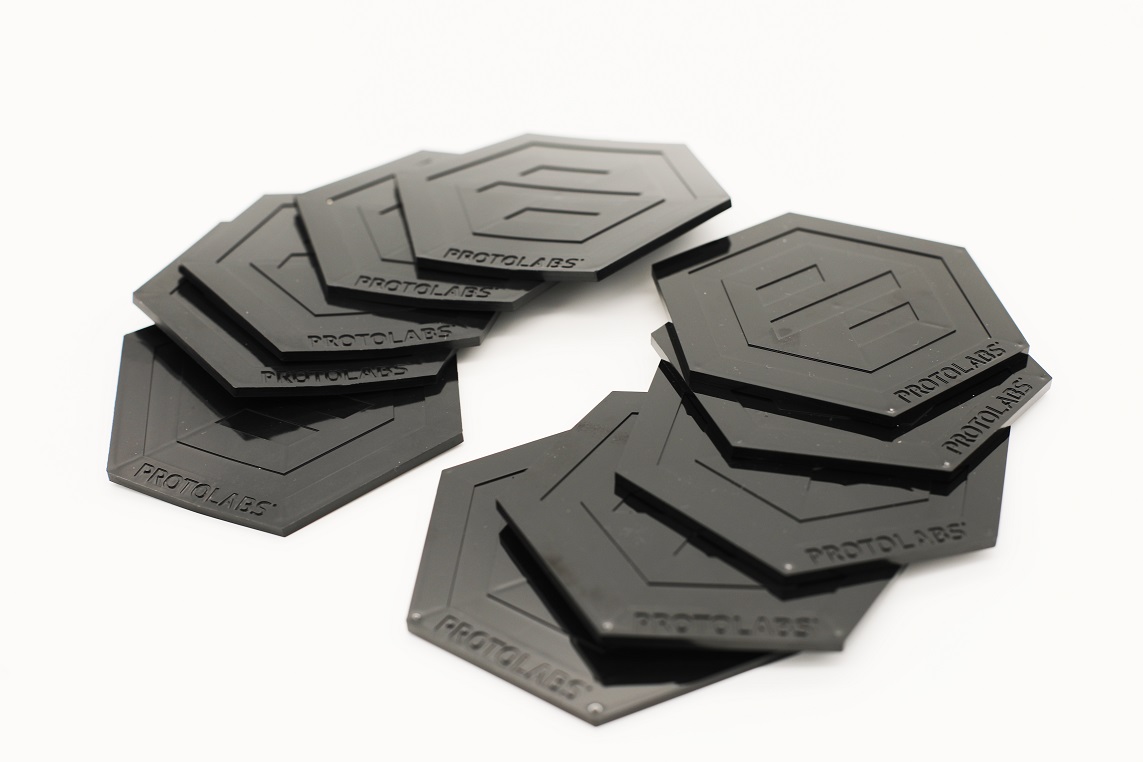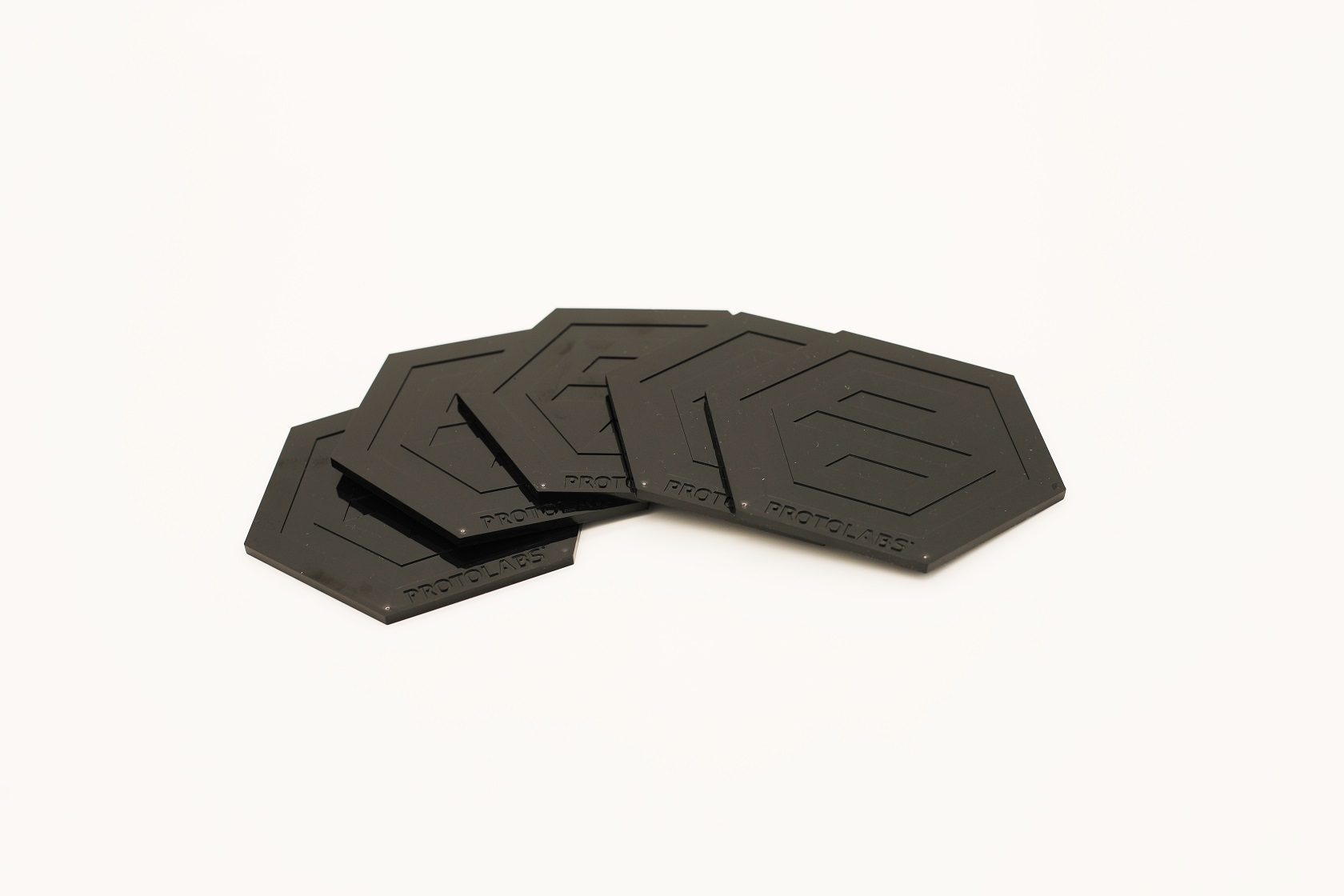The Rise of Recycled Materials:
Injection Moulding with recycled materials vs traditional counterparts.

In today’s world, where sustainability is a pressing global concern, the need for greener manufacturing practices has never been more crucial. However, there are often misconceptions surrounding this topic. In this blog, we will delve into the realm of recycled materials for injection moulding, exploring their potential to replace traditional counterparts in various applications, and thereby, contribute to a more environmentally considerate manufacturing process.
Historically, there have been concerns about using recycled materials in the injection moulding industry, primarily based on the quality and reliability of the material. While recycled materials tend to lack the aesthetic of their traditional counterparts, on a technical level, they are not far off the mark when compared to standard materials, and in some instances, recycled materials may even outperform them. Quite often, manufacturers make parts that do not challenge the full mechanical properties of the material. This means that many can, in fact, switch to a recycled material seamlessly as they have so much contingency to play with. At Protolabs we now offer 3 recycled materials for our injection moulding service, we will now explore those materials and compare them to a more traditional but similar alternative.
First on the list is Gebablend 85 Black, an ABS/PC material used in applications such as automotive, consumer electronics, machine construction and sports. Offering a heat deflection of 128°C and a tensile modulus of 2,400 MPa, this is pretty much on par with its standard counterpart, Bayblend T65 XF Black, which offers a slightly lower heat deflection of 122°C and matches its tensile strength of 2,400 MPa. When you look into the details, Gebablend 85 slightly misses out on shrink rate, which is 0.45-0.8% compared to Bayblends 0.5-0.7%. However, it exceeds Bayblend in flow rate.

Next on the list is Gebalon PC Ultimate G0 FR Black, a PC material whose common applications include technical moulded parts, particularly in the electronics and electrical industries for parts such as connectors, boxes, and switches. Gebalon offers a heart deflection of 136°C and tensile strength of 2,200 MPa, compared to a standard PC material such as Iupilon S3001R, which has a higher heat deflection of 140°C and a higher tensile modulus of 2,400 MPa. Where Gebalon outperforms its counterpart is in its flammability rating. Gebalon has a flammability grade of V0 at 1.5mm, while Iupilon’s is V2 at 1.5mm.
The final recycled material on the list is Gebamid PA6 B GF 30% Black, a glass-filled Nylon material used in the automotive, electrical, and mechanical industries. Gebamid has a heat deflection of 191°C and a tensile modulus of 7,500 MPa. This is quite a difference from its standard counterpart, Nylon 6 Radilon S RV300 30% GF Black, which has a heat deflection of 215°C and a tensile modulus of 9,600 MPa. Whilst it does have a lower tensile modulus and a wider shrinkage ratio, its water absorption is almost the same, and if you have left a wide buffer in your technical requirements, Gebamid could be an option for you.

Protolabs injection moulding - recycled vs non-recycled materials.
| ABS/PC | PC | PA6 GF 30% | ||||
|---|---|---|---|---|---|---|
| Gebablend 85 Black | Bayblend T65 XF Black | Gebablon PC Ultimate G0 FR | Iupilon S300IR Clear | Gebamid PA6 B GF 30% Black | Nylon 6 Radilon S RV3OO 30% | |
| Heat Deflection (0.45 MPa) | 128°C | 122°C | 135°C | 140°C | 191°C | 215°C |
| Heat Deflection (1.8 MPa) | 109°C | 102°C | 124°C | 128°C | Not Found | Not Found |
| Tensile Modulus | 2,400 MPa | 2,400 MPa | 2,200 MPa | 2,400 MPa | 7,500 MPa | 9,600 MPa |
| Yield Stress/ Strength | 55 MPa | 54 MPa | 60 MPa | 60.3 MPa | 150 MPa | 175 MPa |
| Shrinkage | 0.45-0.8% | 0.5-0.7% | 0.4-1% | 0.60% | 0.25-1% | 0.30% |
| Density | 1.15g/cm3 | 1.13/cm3 | 1.2g/cm3 | 1.2g/cm3 | 1.36g/cm3 | 1.35g/cm3 |
| Melt Volume-Flow Rate (260°C / 5.0 kg) | 23cm3 / 10 min | 18cm3 / 10 min | N/A | N/A | Not Found | Not Found |
| Flammability UL94 | Not Found | Not Found | v0 at 1.5mm | v2 at 1.5mm | Not Found | HB at 0.8mm |
| Water Absorption 23°C 50% RH | Not Found | Not Found | Not Found | Not Found | 2.10% | 2% |
| Recycled Content | > 90% | 0% | > 90% | 0% | 100% | 0 |
Now that recycled materials demonstrate technical capabilities close to their traditional counterparts, they are a viable alternative for the more eco-conscious manufacturer. Not every application will be suitable for recycled materials due to requirements around look, feel and performance. But as we continue to explore methods of sustainable manufacturing, choosing between recycled and non-recycled materials becomes a practical decision, and allows manufacturers to take the first steps towards a more sustainable future.
Is there another recycled material that you would like to use for your moulded part? At Protolabs we accept customer supplied materials, this includes any recycled materials.
For further information on materials provided by Protolabs and their capabilities, please read more here, book a meeting with one of our applications engineers, call +44 (0) 1952 683047, or email customerservice@protolabs.co.uk






